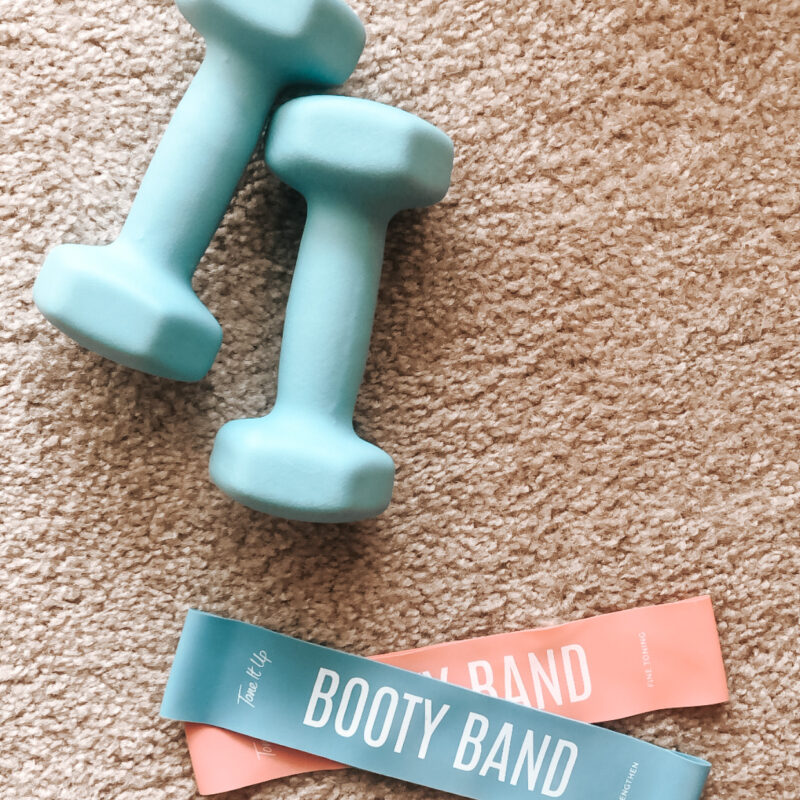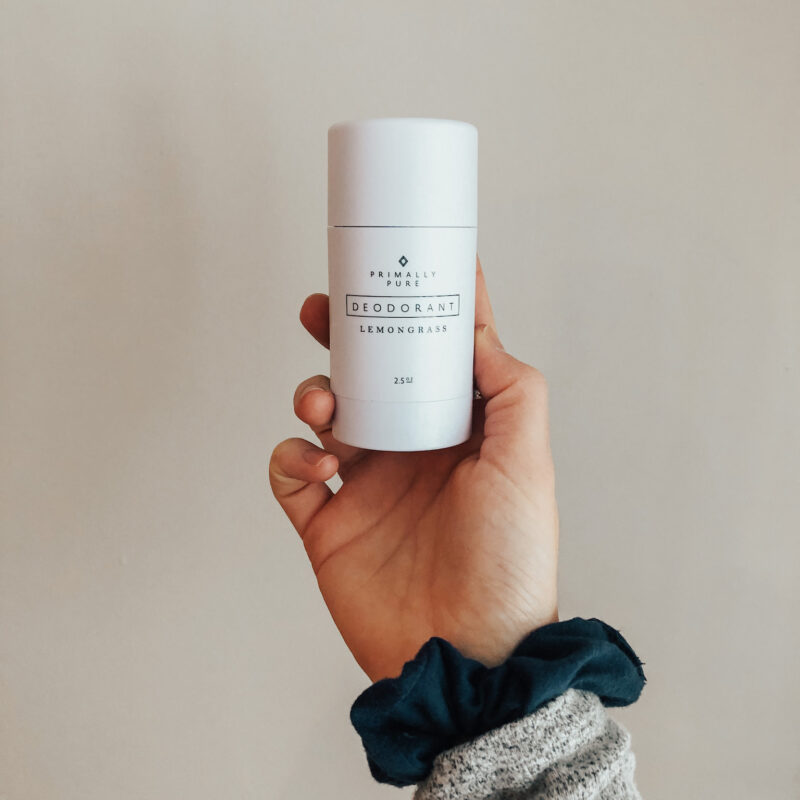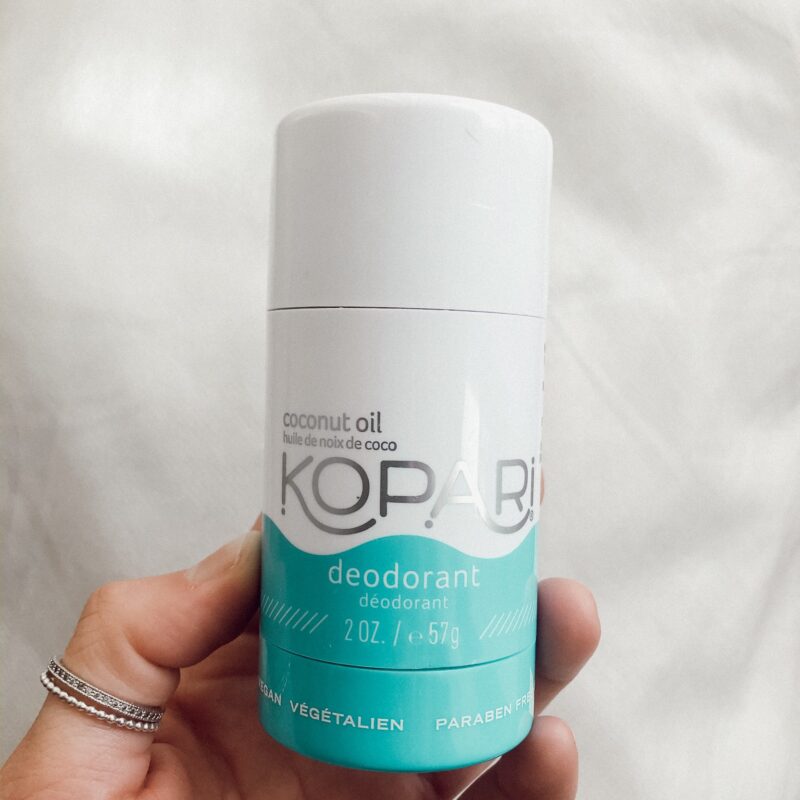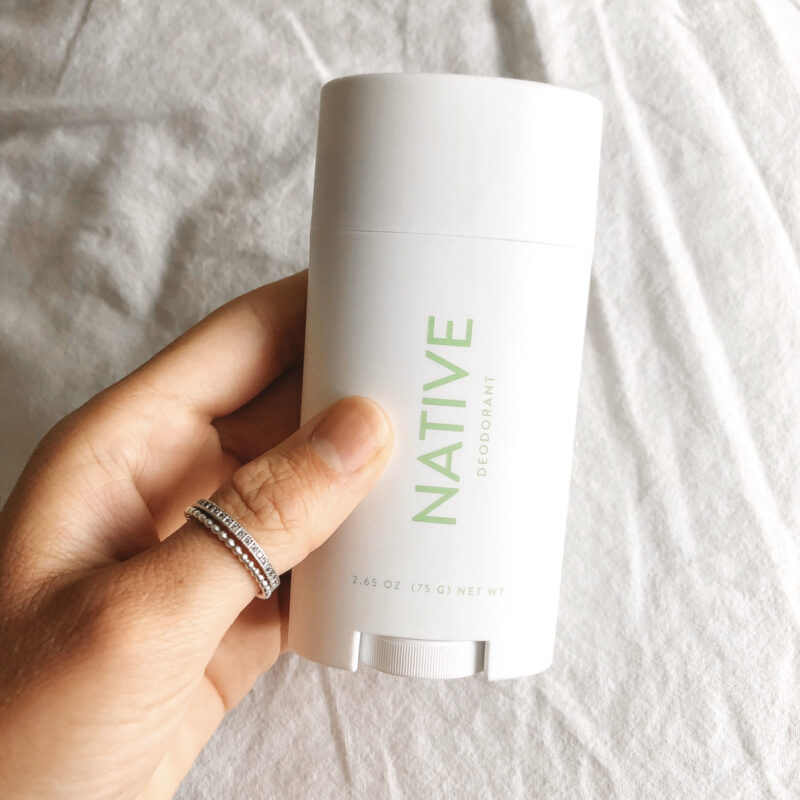This post is all about the top 3 products that you should find non-toxic alternatives to.
We all know that everything we put into our body has an effect on it, but guess what? Everything we put ON our body affects it just the same. It wasn’t until my mid-20s that I learned how important it is to find non-toxic alternatives to the products that I use on a daily basis: deodorant, shampoo and conditioner, body wash, toothpaste, makeup, chapsticks, and more.
I am not an expert when it comes to what we should use and what we shouldn’t, but I have really prioritized educating myself over the last few years on the ingredients I should avoid in personal care products, and I am doing my best to find non-toxic alternatives!
I will say that this doesn’t come without a challenge. Switching over products to non-toxic alternatives takes time, effort, research, and (let’s face it) money. That’s why I have been replacing mine one at a time. When I am about to run out of something, I research the next best thing, and then I purchase that. You won’t ever find me dumping my entire makeup bag in the trash because it’s not all “clean”, and I don’t want you to do that either! This way, we’re not wasting money, and we’re not wasting products either. It’s about progress, not perfection, right?
With that said, I have narrowed down the top 3 personal care products that I would recommend to a friend (you!) to switch over first.
3 Products That You Should Find Non-toxic Alternatives To
Feminine Care Products
You will be really surprised to see which ingredients are in pads, tampons, and liners. I mean, chlorine… are you kidding? There are many, many harmful ingredients in most feminine care products that have been linked to cancer, endocrine disruption, reproductive toxicity, and more. Do your own research here, but I am a big proponent of saying no to harmful ingredients especially when we use these products so often and for long periods of time. See what I did there?
I stumbled upon L. Organic when I was in Target, and I have been extremely impressed ever since. You would think that organic cotton tampons and pads would be expensive, but these run around the same price as the bigger name options. Plus, they are compact and every purchase supports female entrepreneurs! Other great brands include Cora, Rael, and LOLA.
Up until I switched to non-toxic and organic pads and tampons, I was using the brands I had been buying at the store since high school. While it can be nerve-wracking to switch from those trusty options, I really recommend giving some non-toxic alternatives a try. You won’t miss chemicals that are close to your hoo-hah, promise.
Shampoo & Conditioner
These are technically two products, but to me, they go hand in hand! There are hundreds of harmful chemicals in even the most expensive hair care products due to the unfortunate lack of regulation in the beauty industry. When I first learned about this, I realized that shampoo & conditioner are definitely in my top most used personal care products, so they had to be some of the first products I switched to non-toxic alternatives!
A new favorite brand of mine is Prose, but there are endless options on the market to choose from! When your current bottles are out, I recommend looking for shampoos and conditioners that don’t have any sulfates, parabens, phlathates and are free of dyes and mystery fragrances – all of which can add to your toxic load (the accumulation of toxins and chemicals that we ingest from a variety of things, including the personal care products we use.)
If you’re worried that non-toxic shampoos and conditioners won’t work as well, fear not. I was a skeptic too, but I will never switch back! I have loved trying out safer options, and the ones I have tried so far have performed better than what I was using before.
If you want to give Prose a try, you can save $10 with my referral link: here!
Deodorant
When it comes to straying away from your tried and true 8th-grade deodorant, you probably don’t want to even think about exploring other options. The biggest culprit in traditional deodorants is aluminum which works like a plug to block sweat, but the problem is that you’re supposed to sweat! Instead of blocking sweat, ingredients in non-toxic deodorants work to mask the scent instead.
I have heard a lot of people say that they have tried switching to a deodorant without aluminum and it didn’t work for them, but it’s likely that they were just going through a little bit of a detox phase. When you stop using deodorant with aluminum, your body starts to push out all of those chemicals through your sweat. While this is such a good thing, it can cause a slight odor. Luckily, I didn’t experience any sort of detox, so you might not either!
There are a lot of really effective natural deodorants on the market that I think you will like a lot. Specifically, I think that the deodorants that Kopari, Primally Pure and Native offer are well worth the hype. I use Native most frequently because it’s easy to grab at Target, but I recommend the other two as well!
If you are interested in trying Primally Pure’s deodorant, you can use my code “HAILEY10” to save yourself a little bit of cash!
If I’m being honest, I used to think that non-toxic products wouldn’t work as well as alternatives. I think a lot of people have that assumption! To my surprise, I was totally wrong about that. If you stick to great brands, they work, and in all of the ways they are supposed to without disrupting your health and well-being. Some of my favorite brands are Primally Pure, Native, L.Organics, Prose, Dr. Bronner’s (I love their peppermint chapstick and baby unscented bar soap as body wash), and Branch Basics.
How to Educate Yourself & Find Non-Toxic Alternatives
I recommend that you do a little research and educate yourself on the ingredients that are in the products that you use on a daily basis and how they effect you. This way, you can understand what toxins actually are, which ingredients to strive to avoid as often as you can, make your own decisions, and finally, feel empowered about the way you are prioritizing yourself and your health.
One of my favorite resources is the Environmental Working Group’s website. More specifically, EWG Skin Deep offers a database that outlines potentially toxic chemicals in personal care and beauty products. You can search for any ingredient, brand, or product and learn about what exposure to it means for your health. EWG Skin Deep has hazard ratings for nearly 70,000 products and 9,000 ingredients on the market, so there is no doubt you’ll find the information for exactly what you’re looking for.
Next time you do reach for a product, ask yourself: What are all of these things I can’t pronounce? What is their purpose? Are they sustainable? Are they safe? Do I believe in them? And finally, do I feel good about using them? With just a few switches, you are going to feel so much better about how you are prioritizing your health.
If you have already started to incorporate non-toxic alternatives to personal care products, I would love to hear about some of your favorites so far. I’d love to give them a try. Let me know in the comments below!
If you haven’t started the transition and you’re looking for great non-toxic alternatives, don’t forget that you can save $10 at Prose with my referral link here and use my code “HAILEY10” at Primally Pure!
This post was all about the top 3 products that you should find non-toxic alternatives to.
Other Posts You May Like:
Natural Deodorant Review: Native
5 Inexpensive and Easy Ways That You Can Practice Self-Care Today
My (Mostly) Natural Nighttime Skincare Routine
Disclosure: Please note that some of the links above are affiliate links, and at no additional cost to you, I will earn a commission if you decide to make a purchase after clicking through the link.





Leave a Reply